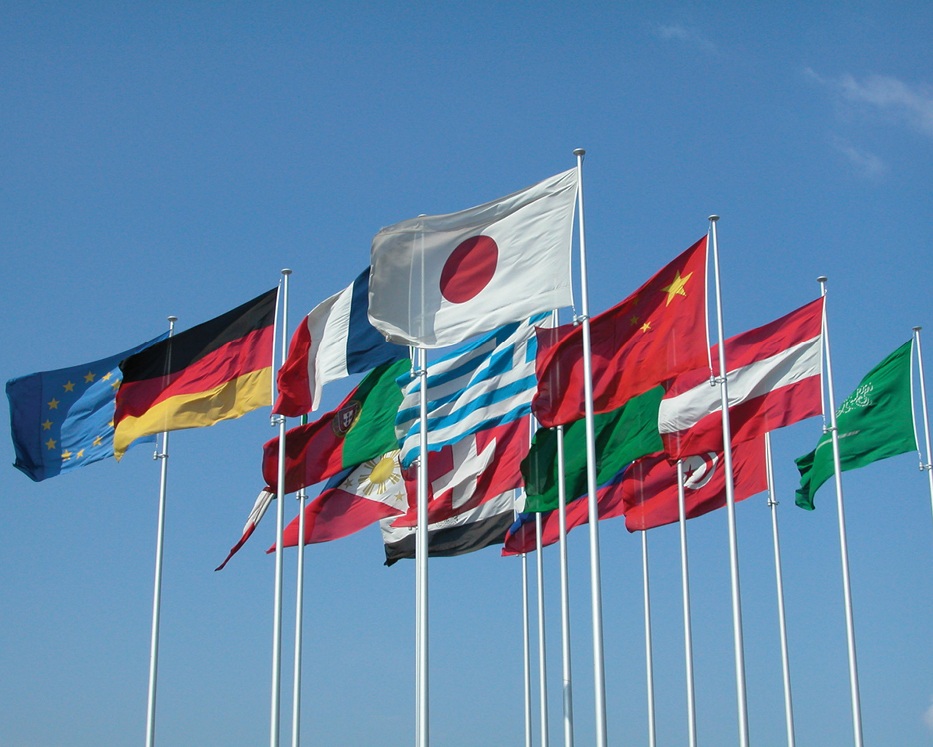Key Takeaways
- Trump recently announced steep tariffs on some pharmaceutical imports, to encourage domestic production.
- The tariffs will have many exceptions and will likely not cover most of the drugs that Americans use.
- Both the TCJA and OBBBA include provisions aiming to reduce the incentives for IP-reliant industries to move assets offshore.
- The government shutdown could delay guidance on how to comply with new rules on foreign assistance for projects using green energy credits.
- Appeals court reverses recent IRS international tax victory.
Last week, President Trump posted on social media that he would be imposing 100% tariffs on pharmaceutical imports—unless the company was “BUILDING their Pharmaceutical Manufacturing Plant in America.” The announced tariff, set to go into effect today but already delayed, is the latest demonstration of one of the president’s areas of focus—how tax policy has encouraged drug companies to locate intellectual property and production offshore.
According to reports, the tariffs will have less of an effect that they may have seemed at first. They will not cover generic drugs, which account for the majority of pharmaceutical imports. And Ireland—as well as the rest of the European Union—is still covered by the trade agreement the administration made earlier this year, which limits tariffs to 15 percent. Those limits will still apply, according to administration officials.
There are many reasons why pharmaceutical firms, both inside and outside the U.S., have found ways to take advantage of the global tax system. It is an industry which relies heavily on patents and other intellectual property, which can be involved in complex tax structures due to their mobility and difficulty to value. Those advantages have been a factor—though not the only one—in growth of strong pharmaceutical sectors in countries like Ireland.
The signature tax bill from Trump’s first term, the Tax Cuts and Jobs Act, included measures to try to reduce the incentive for companies to locate IP offshore. That included the tax on global intangible low-taxed income, a 10.5 percent minimum tax targeting intangible assets, as well as the tax benefit for foreign-derived intangible income, an incentive for domestic profits. Those provisions have caused major changes in the international tax system, but so far haven’t reversed the continued rise of offshore production.
The recently passed One Big Beautiful Bill Act modified those provisions, removing the intangible aspect. That could increase the incentives to locate profit in the U.S.—especially for companies with large amounts of manufacturing either in the U.S. or abroad. But tax-writers eschewed proposals which would have targeted pharma more specifically.
So far, it’s unclear if tariffs are a strong enough tool to change decisions about where to locate facilities. But since Trump’s announcement, Pfizer, one of the biggest U.S. pharmaceutical companies, announced a partnership with the White House and said it would expand domestic production. It remains to be seen if their largest competitors will follow suit.
Noteworthy Items This Week
Treasury is preparing guidance designed to implement new provisions in the GOP tax law enacted in July that prevent prohibited foreign entities, such as China and Russia, from benefiting from energy tax credits. But Democrats and Republicans in Congress have yet to reach a deal to keep the government from shutting down Oct. 1, which would delay Treasury and the IRS’s rollout of guidance for the new law.
Former IRS Chief Backs Expats’ Bid for Residency-Based Taxation – Jonathan Curry, Tax Notes ($):
The challenges are many, according to Rettig and Cullinan. Americans abroad have to reckon with “disproportionate penalties for mistakes, however minor or unintentional,” and they “often face tremendous difficulties communicating their [tax] positions and providing relevant information” to the IRS, they wrote. The revenue raised is minimal relative to the “high personal cost in terms of anxiety, time and money,” they said.
Faulting IRS, Appeals Court Remands 3M Transfer Pricing Dispute – John Woolley and Tristan Navera, Bloomberg Tax ($):
The IRS’s position is “breathtaking in its potential reach,” Judge David R. Stras wrote for the Eighth Circuit on appeal. The court remanded the case to the Tax Court for a redetermination.
Justices Could Enable IEEPA Taxes On Any Trade, Experts Say – Kevin Pinner, Law360 Tax Authority ($):
If the tariffs are upheld, the president could use the law to tax not only imports and exports of services and IP but foreign investments into the U.S. and outbound investments as well, according to Harrell.
What’s this got to do with taxation? Trump has to be polite about OECD BEPS 2.0 negotiations in which the United States has participated, even though there are no legally binding commitments, because the Europeans are prepared to refill their depleted coffers at the expense of U.S. multinationals. Congress threatened a retaliatory tax, then backed off when G7 ministers made a statement about a side-by-side system, implying that U.S. multinationals would be excused from the pillar 2 global minimum tax. Congress made most of the changes to GILTI and FDII that the Europeans demanded.
Public Domain Superhero of the Week
Every week, a new character from the Golden Age of Comics, who’s fallen out of use.
This week’s entry: The Wizard
/arrow/blackangel/black_angel2/capt-triumph/wizard.jpg)
Debut Year: 1941
Debut Publication: Top-Notch Comics #1
Origin Story: From a family of Americans who've served their country since the Revolution, he donned a tuxedo, mask and cape to fight evil and crime.
Superpowers: Simply through self-training, he has given himself powers ranging from super-strength to clairvoyance.
Eide Bailly's International Tax Team and our affiliates at HLB, The Global Advisory and Accounting Network, stand ready to assist with your worldwide tax needs.
Make a habit of sustained success.



